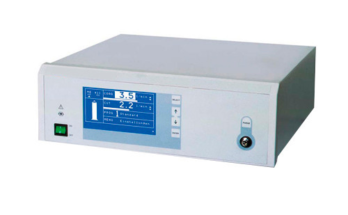Flow meters are an essential part of many industries, from water treatment and management to fuel dispensing and more. A flow meter measures the rate of fluid flow, either in volume or mass, and is used to optimize various processes. Calibration is the process of adjusting a flow meter to ensure accurate readings, and calibration service offers can help ensure that your flow meter is operating optimally. If you are looking to get the most accurate flow measurements possible, it’s important to have your flow meter calibrated regularly. Flow meter calibration service can offer you this vital service, ensuring your readings are always as accurate as possible. This can help optimize your processes and improve productivity. Talk to a flow meter calibration specialist today to learn more about how they can help you achieve optimal results.
What is a flow meter and what does it do?
A flow meter is a device used to measure the volume or mass flow rate of a liquid or gas. There are many different types of flow meters, each designed for a specific medium and application. For example, positive displacement flow meters are often used for liquids, while turbine flow meters are better suited for gases. Ultimately, the type of flow meter used will depend on the properties of the substance being measured and the desired accuracy of the measurement. Flow meters are used in a variety of industries, from oil and gas production to water treatment. In many cases, they are essential for ensuring that processes are running smoothly and safely. By continuously monitoring the flow rate of a substance, flow meters can help to prevent accidents and costly downtime.
How calibration can help ensure optimal results?
When it comes to ensuring optimal results, calibration is key. By definition, calibration is the process of adjusting a measuring device so that its readings are correct within a specified tolerance. In other words, it helps to ensure that your measurements are as accurate as possible. This is important in a variety of settings, from manufacturing and quality control to scientific research. With proper calibration, you can be confident that your measurements are precise and reliable. Additionally, calibration can help to extend the lifespan of your equipment by preventing damage from inaccurate readings. In short, calibration is an essential part of any process where accurate measurements are critical. When performed regularly, it can help to ensure optimal results.

The benefits of having a calibrated flow meter
A calibrated flow meter is an important piece of equipment for many industries. It is used to measure the rate of flow for a variety of liquids and gases. There are many benefits to having a calibrated flow meter, including:
- Precise Measurement: A calibrated flow meter can provide very precise measurements, which is critical for many industrial applications.
- Repeatability: A calibrated flow meter will provide the same reading each time it is used, which is essential for consistent results.
- Accuracy: A well-calibrated flow meter will be highly accurate, ensuring that you are getting the correct information.
- Stability: A properly calibrated flow meter will be stable over time, meaning that you can rely on its readings for long-term use.
- Versatility: A calibrated flow meter can be used with a variety of different liquids and gases, making it a versatile tool.
- Safety: Using a calibrated flow meter can help to ensure safety in many industrial settings.
- Cost Savings: In many cases, a calibrated flow meter can save money by reducing waste and optimizing production processes.
How often should you have your flow meter calibrated for best results?
For those in the chemical industry, calibrating a flow meter is an important part of maintaining safety and quality control. But how often should this crucial task be performed? The answer depends on a number of factors, including the type of meter being used and the specific application. For example, many industrial meters are designed for use with corrosive or abrasive materials. In these cases, it’s important to perform regular calibration to prevent wear and ensure accuracy. In other applications, such as measuring the flow of clean water, calibration may only be necessary once every few years. Ultimately, the best way to determine the frequency of calibration is to consult with the manufacturer or a qualified technician. By following these guidelines, you can help ensure that your flow meter is always operating at peak performance.




